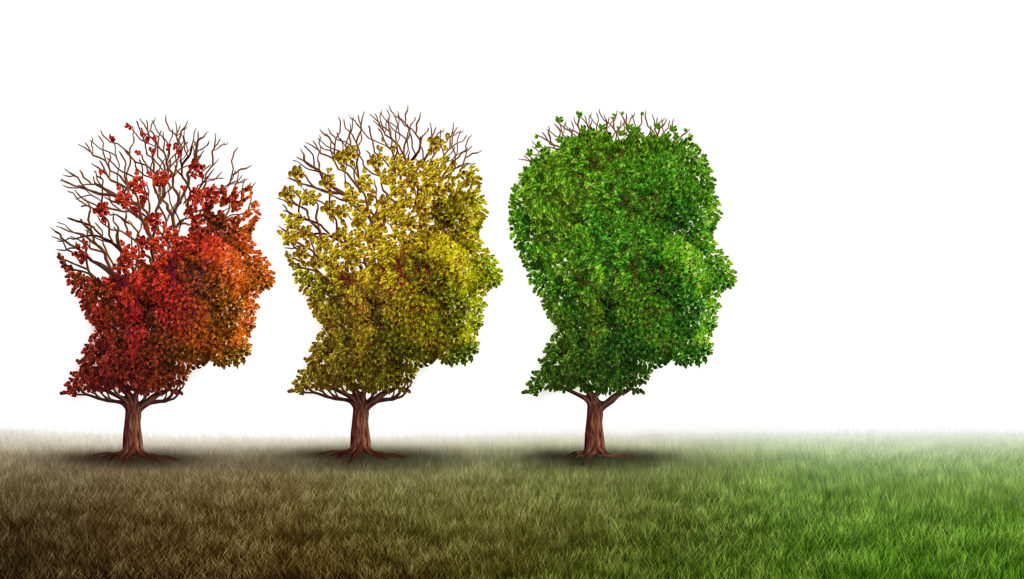Nothing is more unnerving than knowing that dementia might run in your family. Whether you have a distant Aunt or Uncle or a first degree family member like a parent or sibling with dementia in some form, the idea that there might be a genetic reason for it can make you question every time you lose a key or forget someone’s name. Nevermind that everyone does this from time to time-somehow we are convinced that each time it’s a “flag” or a warning.
Things to Consider
The simple truth is that there are a lot of reasons for memory loss and many of them are treatable and fairly easy to remedy. Here are some of the more common things that can cause memory loss and some of them are easily remedied.
Medications. A number of prescription and over-the-counter medications can interfere with or cause loss of memory. Possible culprits include: antidepressants, antihistamines, anti-anxiety medications, muscle relaxants, tranquilizers, sleeping pills, and pain medications given after surgery.
Alcohol, tobacco, or drug use. Excessive alcohol use has long been recognized as a cause of memory loss.
Smoking harms memory by reducing the amount of oxygen that gets to the brain. Studies have shown that people who smoke find it more difficult to put faces with names than do nonsmokers. Illicit drugs can change chemicals in the brain that can make it hard to recall memories.
Sleep deprivation. Both quantity and quality of sleep are important to memory. Getting too little sleep or waking frequently in the night can lead to fatigue, which interferes with the ability to consolidate and retrieve information.
Depression and stress. Being depressed can make it difficult to pay attention and focus, which can affect memory. Stress and anxiety can also get in the way of concentration. When you are tense and your mind is overstimulated or distracted, your ability to remember can suffer. Stress caused by an emotional trauma can also lead to memory loss.
Nutritional deficiency. Good nutrition — including high-quality proteins and fats — is important to proper brain function. Deficiencies in vitamin B1 and B12 specifically can affect memory.
Head injury. A severe hit to the head — from a fall or automobile accident, for example — can injure the brain and cause both short- and long-term memory loss. Memory may gradually improve over time.
Stroke. A stroke occurs when the blood supply to the brain is stopped due to the blockage of a blood vessel to the brain or leakage of a vessel into the brain. Strokes often cause short-term memory loss. A person who has had a stroke may have vivid memories of childhood events but be unable to recall what he or she had for lunch.
Dementia. Dementia is the name for progressive loss of memory and other aspects of thinking that are severe enough to interfere with the ability to function in daily activities. Although there are many causes of dementia — including blood vessel disease, drug or alcohol abuse, or other causes of damage to the brain — the most common and familiar is Alzheimer’s disease. Alzheimer’s disease is characterized by a progressive loss of brain cells and other irregularities of the brain.
Other causes. Other possible causes of memory loss include an under-active or overactive thyroid gland and infections such as HIV, tuberculosis, and syphilis that affect the brain.
Finding the cause for memory loss
If you feel that you are having increasing problems with your memory, make an appointment with your primary care physician. He or she will conduct a physical examination. They will talk to you about your concerns and take a complete history of your health and your family’s health. If additional testing or a neurological evaluation is indicated your physician will explain every procedure and its purpose to keep you informed every step of the way.
Memory Loss Treatment
Treatment for memory loss depends on the cause. Many times treatment is as simple as a lifestyle adjustment or getting more sleep or taking a supplement. But if medical interventions are needed as in the case of the effects of stroke or early Alzheimer’s your doctor will discuss those treatment options with you as well.
Whatever the cause, it is important to treat the underlying cause early so that the progression of the cause or disease can be slowed or sometimes even stopped.
Facing Your Fears
The important thing to remember is that knowledge is power. And realizing that many of the “signs” that we notice are a normal part of aging and should not necessarily be cause for alarm. A “feeling” that it takes longer to learn something new is not unusual after age 70, for example. Or occasional forgetfulness is also a normal consequence of aging. But if you still have concerns but don’t quite feel ready to approach your doctor, I recommend taking a look at the Alzheimer’s Association’s handy list of “10 Early Signs and Symptoms of Alzheimer’s.” This useful guide lays out normal age related lapses versus more serious warning signs.
Another avenue is to explore is to sign up for Chandler Hall’s dementia series. This informative series includes 3 Zoom sessions exploring different topics relating to identifying, understanding and coping with dementia.
Our first Zoom session features speaker Kevin Jameson, Founder and President of the Dementia Society of America. He will present his well received talk The Dementia Action Plan. Subsequent talks feature Maggie Sullivan of the Alzheimer’s Association who will discuss How to Cope With Caregiving on September 26th. And on October 10th Danielle Micale MHA, LNHA, CTRS, CDP, CADDCT, CDCM will share with us her insights on Dealing with Difficult Behaviors.
Each session promises to provide us with information that will inform and hopefully help us manage our own individual concerns and fears. Contact jriegel@chandlerhall.org to reserve your spot or call 267-291-2302.

